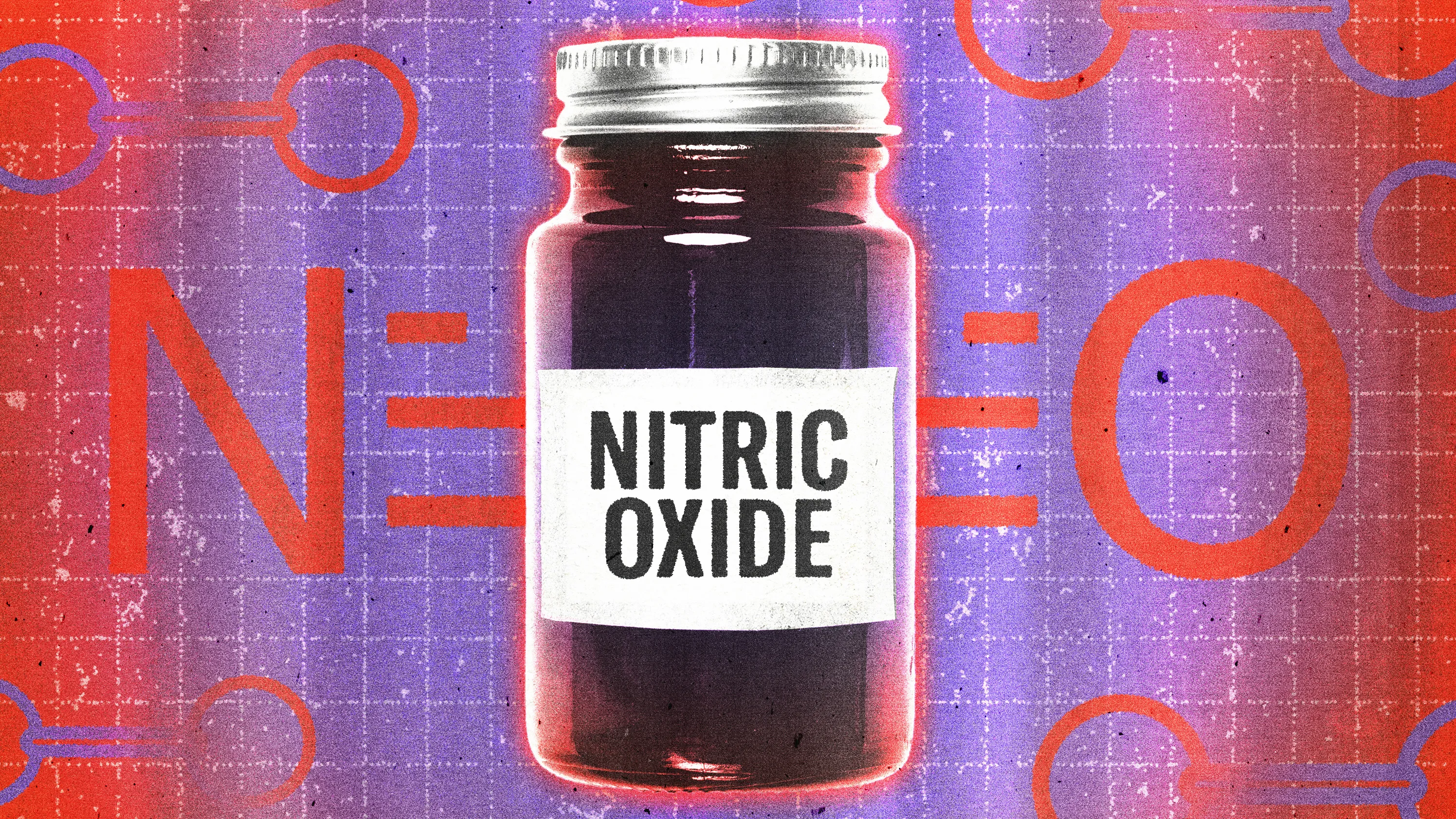By Olivia Vaile
Copyright gq

Nitric oxide is the newest darling in the ever-growing line-up of performance boosting supplements. Those singing its praises cite promising research that it may help with a handful of physiological processes, ranging from increasing stamina and mental function to reducing erectile dysfunction.
But what is nitric oxide anyway, and do we need more than the supply our bodies already produce to support our essential bodily functions? We asked the experts to explain.
What is nitric oxide?
ŌĆ£Nitric oxide is a gas manufactured by the body and is one of the most significant aspects in achieving a complete erection,ŌĆØ says Dr. Blen Tesfu, an MD and general practitioner with the UK-based health platform Welzo. ŌĆ£It communicates to the blood vessels that they should relax and widen, which is good for circulation and for helping regulate blood pressure. It also improves the supply of oxygen and nutrients to muscles and tissues.ŌĆØ
What can nitric oxide do for my fitness?
ŌĆ£Nitric oxide makes hard work feel easier, it is like upgrading the plumbing system for your muscles,ŌĆØ says Michael Baah, celebrity personal trainer, strength coach and qualified exercise oncology specialist.
Since nitric oxide production improves blood flow and oxygen delivery, ŌĆ£muscles receive nutrients faster and clear waste products more effectively,ŌĆØ Baah says. ŌĆ£That translates to better endurance, reduced fatigue, and sharper performance.ŌĆØ The fact that it helps your vascular health means that it is not only beneficial to sexual performance, but supports sharper mental function too.
Nitric oxide can also boost your cardio performance. According to Baah, ŌĆ£regular nitrate intake has been shown to improve endothelial function, reduce arterial stiffness, and lower blood pressure.ŌĆØ If Hyrox, HIITs or circuits are your thing, you will find that ŌĆ£perceived exertion drops, which can keep quality high in the back half of tough sessions.ŌĆØ
If you love to lift, it may help with that too. ŌĆ£Acute supplementation with nitrates can improve performance in a single session, and citrulline delivers a pump within an hour,ŌĆØ says Baah. Longer-term, consistently supporting nitric oxide production lends to better exercise capacity: ŌĆ£Regular nitrate intake may enhance the quality of cumulative training. That can mean sustained improvements in VO2 max and efficiency and improvements in time-to-exhaustion and critical power. Over time, reduced oxygen cost means the same workload feels easier.ŌĆØ
That said, nitric oxide supplements are not a replacement for doing the work. ŌĆ£Nitric oxide is more of a supportive tool rather than a primary driver of strength or endurance gains,ŌĆØ says personal trainer Sam Laurence. ŌĆ£While the effects can be noticeable, theyŌĆÖre often modest unless paired with structured training and nutrition.ŌĆØ
Can I boost nitric oxide production naturally?
You can indeed! ŌĆ£Any form of exercise that elevates heart rate and blood flow can stimulate nitric oxide release. HIIT, resistance training, and aerobic exercise are all effective,ŌĆØ says Laurence. ŌĆ£Practices like yoga or controlled breathing can complement exercise by boosting natural nitric oxide availability.ŌĆØ
As obvious as it sounds, simply breathing is one of the easiest ways to increase nitric oxide production. Types of breathwork include meditative slow breathes, nasal breathing and even humming. The latter, Baah explains, ŌĆ£creates vibrations in the sinuses, shaking loose a surge of nitric oxide that supports circulation and oxygen delivery.ŌĆØ
Food is also a great way to boost your nitric oxide intake. ŌĆ£Dietary sources such as beetroot, pomegranate juice, citrus, nuts, seeds (arginine-rich), spinach, rocket, and other nitrate-rich vegetables are excellent for supporting natural nitric oxide production and provide fiber, antioxidants, and micronutrients,ŌĆØ says Coralie Norman, a registered nurse.
Baah corroborates Norman with the following: ŌĆ£Controlled studies show dietary nitrates, particularly from beetroot juice, can reduce the oxygen cost of steady-state exercise by up to ~5%. That is a meaningful edge for runners, rowers, and cyclists.ŌĆØ
Where do creatine and protein powder fit in?
Nitric oxide should not replace your other supplements, but work alongside them. ŌĆ£Nitric oxide boosters occupy a different lane,ŌĆØ says Baah. ŌĆ£Protein is foundational. Creatine is the most researched ergonenic aid in history. Nitric oxide supplements are situational tools rather than essential building blocks.ŌĆØ He follows up with a simple analogy: “Protein is your bricks, creatine is the scaffolding, nitric oxide is the plumbing system that keeps everything running smoothly.ŌĆØ
What reduces nitric oxide in the body?
ŌĆ£Our ability to produce nitric oxide declines with age,ŌĆØ says Laurence. ŌĆ£Chronic stress, poor sleep, and diets high in processed foods can also impair nitric oxide pathways.ŌĆØ Thankfully, certain supplements can help slow this natural drop, along with regular exercise and specific foods: ŌĆ£Antioxidants like vitamin C and polyphenols, found in berries and dark chocolate also protect nitric oxide from breaking down too quickly.ŌĆØ
Everything you need to know about nitric oxide supplements
As is so often the case with supplements, nitric oxide products don’t actually contain nitric oxide itself. ŌĆ£They provide precursors that the body converts into nitric oxide,ŌĆØ says Laurence, which means you need to get under the bar and put in the work to see its effects in action. Another myth Laurence wishes to dispel is that they don’t directly build muscle themselves. ŌĆ£They may enhance blood flow and recovery, but muscle growth still depends on many other factors.ŌĆØ
How to choose a supplement
Select products that contain L-arginine and L-citrulline or beetroot extract. Norman suggests looking for ŌĆ£clear labelling of active ingredients, third party testing or quality certification and the absence of unnecessary stimulants or proprietary blendsŌĆØ.
Timing is important
Supplement timing comes down to the type in your hand. Baah says if you’re using nitrates, take your supplement 2-3 hours before an event. ŌĆ£This is when plasma nitrate peaks,” he says. As with citrulline, 40-60 minutes pre-workout is sufficient, as ŌĆ£this allows conversion to arginine (building blocks for protein) in time for the session.ŌĆØ
Take with caution
The recommended dosage for L-arginine is 3-6 grams and for L-citrulline, is 3-8 grams daily. Norman suggests starting with a small dose and seeing how your body reacts.
ŌĆ£One common issue is overdosing on pre-workouts that contain multiple nitric oxide boosters stacked together, such as citrulline, arginine, nitrates, and caffeine all in one. This can lead to digestive upset, headaches, and low blood pressure. People also mistakenly believe ŌĆśmore is better,ŌĆÖ when in reality, the body has a ceiling on how much nitric oxide it can use at once,ŌĆØ says Laurence.
ŌĆ£You should listen to the signs of dizziness, fatigue, or faintness when you first use a supplement,ŌĆØ says Dr. Tesfu. ŌĆ£It is a substance that requires exercising caution among people with problems with the liver and kidneys. Because these organs are involved in breaking down amino acid precursors, supplemental use may add stress on already burdened systems and possibly exacerbate existing problems or drug interactions.ŌĆØ
Norman says the following people should avoid taking nitric oxide supplements: ŌĆ£Anyone with unstable heart disease, severe hypotension, or a history of bleeding disorders and if you are pregnant, breastfeeding or are on medications for erectile dysfunction or chest pain, do not do so without medical supervision.ŌĆØ
ŌĆ£I must stress that nitric oxide supplements are finishing touches, not foundations,” says Baah. ŌĆ£They are most effective once you have sleep, protein, creatine, and structured training locked in.ŌĆØ
Our nitric oxide cabinet looks like



